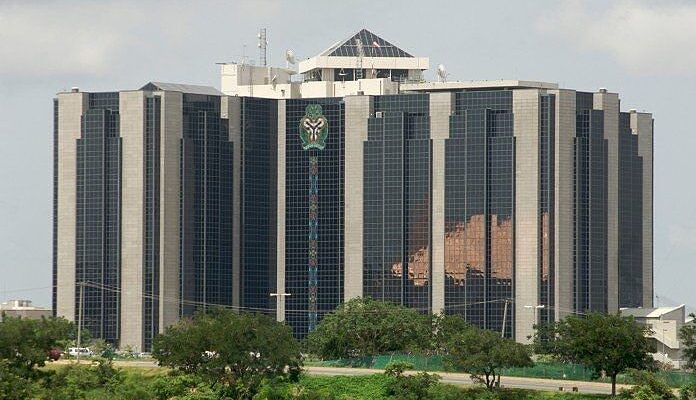
The Central Bank of Nigeria (CBN) has been urged to reconsider its current monetary policies, particularly the high interest rate regime, to prevent the country’s economy from plunging deeper into crisis.
This call was made by Professor Sebastian Uremadu, a seasoned academic in Banking and Finance, while delivering the 60th Inaugural Lecture of Michael Okpara University of Agriculture, Umudike, Abia State, on Wednesday.
Professor Uremadu expressed deep concern over the CBN’s high interest rates, which he said have made it difficult for companies and individual investors to access or repay loans. According to him, this has weakened investor confidence in Nigeria’s business climate, discouraging both local and foreign investments.
He also criticized the apex bank’s directive mandating commercial banks to deposit 50% of their customers’ funds with the CBN, a policy he believes has further constrained liquidity in the banking sector.
“How can the banks be told to keep 50% of customers’ deposits with the CBN? Where will they get money to lend to investors or even meet withdrawal demands from customers?” he queried.
Uremadu lamented that Nigeria’s interest rates, among the highest in the world, are deterring potential investors from taking business risks in the country.
Citing research findings, the professor stated that the CBN’s policies—combined with the removal of fuel subsidy—have significantly contributed to soaring inflation and the escalating cost of living in Nigeria.
He emphasized the importance of Foreign Direct Investment (FDI) as a catalyst for economic development and urged policymakers to create a more conducive investment environment to attract both domestic and international capital.
Furthermore, Uremadu called on the Federal Government to reduce the country’s dependence on foreign loans by ramping up expenditure in critical sectors such as health, education, and infrastructure to stimulate economic growth.
He attributed rising inflation to adverse macroeconomic indicators, including a widening fiscal deficit, unchecked money supply, volatile exchange rates, and persistently high interest rates.
The professor also raised concerns about the accuracy of economic data released by the National Bureau of Statistics (NBS), suggesting that the figures may not truly reflect Nigeria’s current economic realities.

Comments